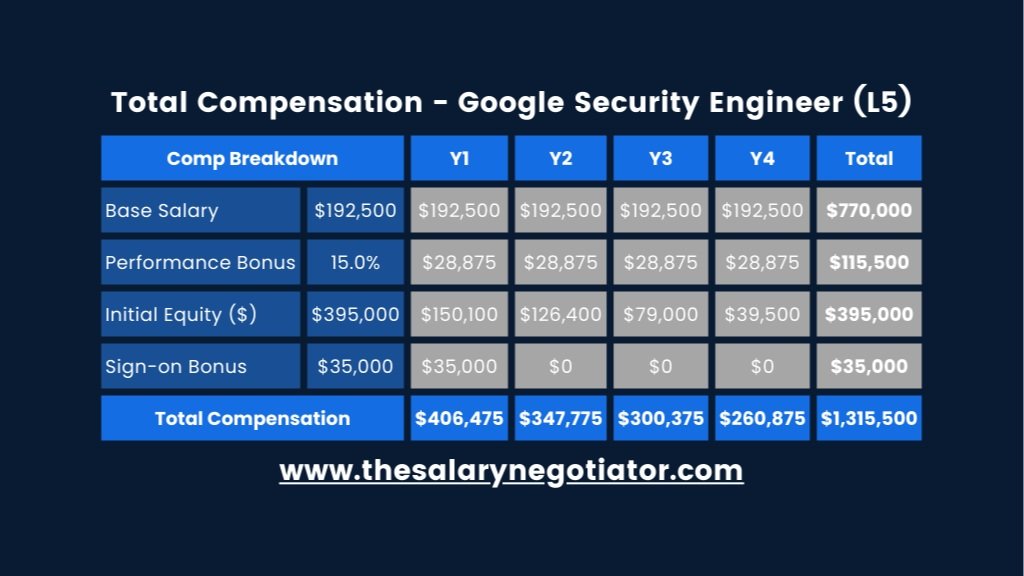Cloud Security Engineer Salary Negotiation: How to Negotiate a Cloud Security Engineer Job Offer
Cybercrime is on the rise—which means security engineers are and will continue to be in high demand. From healthcare to manufacturing to finance, almost all industries are in need of highly skilled security engineers who can safeguard their digital assets.
If you’ve recently received a job offer in this growing and lucrative field, congratulations! There are lots of exciting days ahead for you.
However, before you officially accept your job offer, there’s still one thing you need to think about: negotiating your cloud security engineer salary.
Security engineer jobs are an essential part of any business, so your compensation in this role should reflect the incredible value you bring to the table. Negotiating your cloud security engineer salary gives you the perfect opportunity to maximize your career earnings while also ensuring that you are being adequately compensated for your role.
Even if you’ve never negotiated a job offer before, there’s nothing to worry about. We are here to show you exactly how you can approach a negotiation confidently and effectively. Throughout the article, we are going to share our tried and true negotiation strategies that have helped different specialized engineers all over the world negotiate for better compensation.
With our proven step-by-step guide and key insights, you’ll be prepared for every aspect of your security engineer job offer negotiation.
Want to Negotiate Your Offer? Get offer-specific guidance from a Salary Negotiation Coach. We help security engineers negotiate competitive job offers.
Or leverage our Salary Negotiation Courses and Salary Negotiation Templates.
 Job Offer Negotiation Course
Job Offer Negotiation Course
- Get our job offer negotiation strategies, templates, scripts, and guidance.
- Access our step-by-step lessons, compensation research guides, and tools.
- Access Now
 Raise Negotiation Course
Raise Negotiation Course
- Get our raise negotiation strategies, templates, scripts, and guidance.
- Access our step-by-step lessons, compensation research guides, and tools.
- Access Now
Understanding the Compensation Components of a Cloud Security Engineer Salary
The great thing about security engineer jobs offer negotiations is that they all start in the same place: figuring out how each of the components of your compensation package work and their value.
You might receive a job offer and be tempted to simply zero in on its base salary. However, there’s a lot more that goes into a total compensation package that’s worth thinking about.
In fact, it’s not uncommon for security engineers to also be offered an annual performance bonus, initial equity package, sign-on bonus, and other benefits like remote work flexibility. Each of these components play a significant role in the total value of your cloud security engineer jobs offer.
So even if your cloud security engineer salary seems great, you can’t really know how competitive it is until you break down each of its individual elements.
In any negotiation, only focusing on the base salary of your job offer wouldn’t get you very far. Instead, evaluating all of the different compensation components carefully will give you a much better and accurate picture of the value of your offer.
For example, here is what the total compensation for a Google security engineer salary may look like in their initial offer:
Google Security Engineer Salary
If you’ve taken a look at your cloud security engineering job offer and aren’t quite sure how some of the elements work and/or their value, no worries. In this next section, we are going to carefully break down and explain the most common cloud security engineer salary components for you.
Cloud Security Engineer Salary
To begin, let’s go over the part of your compensation package you probably understand the most: your security engineer base salary. As with any kind of job, your security engineer base salary is the fixed guaranteed pay that you receive in exchange for the work you do.
However, to be able to negotiate your base salary, you first need to understand how it is determined.
Most companies develop base pay ranges for each of their specific job roles. Each of these ranges differ and have set minimum and maximum amounts that dictate what your cloud security engineer salary for that role can be.
For example, the pay range for an application security engineer salary would be different from the pay range for a senior security engineer salary at the same company. The same logic also applies to salaries across different companies (i.e., the pay ranges for a Google security engineer salary will differ from that of a Microsoft security engineer salary).
Here’s why these pay ranges are so important to understand: Initial base salary offers rarely come in at the top end of their pay bands. So if you know what the pay range for your specific role type is, you can then try to negotiate your salary to the top end of that range.
Cloud Security Engineer Performance Bonus
One of the most common components of a security engineer compensation package is a performance bonus.
Generally, a security engineer performance bonus is a percentage of your base salary that’s dependent on both company and personal performance. So depending on the targets you and your company hit, your performance bonus could go up or down. However, it’s best to assume you’ll receive the average bonus payout since it’s unlikely you will exceed those target percentages.
While security engineer performance bonuses can make a huge difference in your annual pay, it’s important to note that these bonuses are non-negotiable most of the time and there is a set target percentage for each role type and level (i.e., a bonus target for a security director salary would be different from a senior cloud security engineer salary or cloud engineering manager salary).
However, don’t forget that performance bonuses are based on a percentage of your base salary. So if you’re able to negotiate for a higher base salary, your performance bonus could go up as well.
Cloud Security Engineer Equity Packages
Many security engineers are also offered equity packages as part of their total compensation. Cloud security engineer equity is highly sought-after and can make a huge difference in the overall value of your offer.
If you receive equity as part of your compensation package, it could be offered either as RSUs (restricted stock units or restricted stock awards) or stock options. This grant will include a bundle of shares or options that vest over a defined timeframe (i.e., four years), called a vesting schedule. The size of the equity grant will also fluctuate based on role level (i.e., is it an entry level security engineer salary, cloud director salary, or VP cloud security salary).
While evaluating the equity you’re offered, never forget that the value of your equity does fluctuate based on the market value of the company you work for. For example, if you secure a Apple cloud security engineer salary offer, you’ll benefit if Salesforce’s share value goes up—but your salary will decrease if Salesforce’s share value goes down. Also keep in mind that if you leave the company before the equity vests, you risk forgoing it all together.
Fortunately, we’ve found that equity is usually negotiable for security engineers—which is why we almost always recommend pushing for more equity in cloud security engineer jobs.
Cloud Security Engineer Sign-On Bonus
It might take some negotiating, but most security engineers should also receive a sign-on bonus as part of their job offers. A security engineer sign-on bonus is a one-time bonus that incentivizes you to join the company and can even be used to cover any lost bonuses or unvested equity at your former job.
Most companies pay these bonuses in one lump sum within the first 30 days of employment. But keep in mind you’ll typically need to pay a security engineer signing bonus back if you leave the company within your first year (or other designated timeframe).
Don’t be alarmed if a company approaches cloud security engineer sign-on bonuses differently, however. For example, the Amazon security engineer salary will include sign-on bonuses in year one and year two—which will be paid out monthly instead of in one lump sum payment. Just make sure you understand exactly what the bonus is and how it works before you try to negotiate it.
You also shouldn’t feel discouraged if you didn’t receive a sign-on bonus in your initial offer—over the years, we’ve had countless successes securing large security engineer signing bonuses during negotiations.
Cloud Security Engineer Equity Refresher
It’s possible to receive an equity refresher (more stock) in a security engineering role, but it’s not always included or guaranteed. You might even find that some recruiters purposefully withhold the stock refresher details. This practice is common for Meta security engineer salary offers and other companies that offer this annual equity perk.
Once you receive your job offer, you should ask the hiring team to provide more details about the amount and timeline of the stock refresher; however, be prepared for them to refuse to share any specific details.
Because it’s often challenging to compare this benefit across different security engineering job offers, we don’t include this component in our total compensation calculation.
Cloud Security Engineer Benefits And Perks
Most cloud security engineer benefits are non-negotiable, but they are still something worth considering carefully.
In addition to health insurance and retirement packages, some of the most common perks you might receive as a security engineer are flexible work from home policies, extended PTO, and even gym memberships.
Even though most of these perks are non-negotiable, you might be able to get changes approved via an under-the-table agreement with your future hiring manager (i.e., your manager will be more flexible with your PTO).
Five Key Steps to Negotiate a Cloud Security Engineer Job Offer
Before we jump into the practical steps for negotiating your cloud security engineer salary, we have one major caveat we need to mention: You should almost never begin negotiations before you have an official offer in hand.
Based on years of experience helping many career professionals successfully negotiate their cloud security engineer job offers, we’ve found having an actual offer will give you more leverage to negotiate and you’ll be less likely to make mistakes like disclosing your salary expectations to the recruiter too early.
The negotiation steps listed below should only be followed after you receive your official offer, not before. So once you have that offer in hand, you can follow the five steps below to learn how to negotiate a job offer confidently and effectively.
While these are the key steps to a cloud security engineer salary negotiation, we strongly recommend security engineers work with a Salary Negotiation Coach to guarantee success and get all of our strategies.
1) Understand The Components Of A Cloud Security Engineer Salary
We’ve covered this concept extensively in the first section of the article, but as a quick reminder make sure that you spend time going over each of the components of your compensation package carefully.
Your negotiation will depend on you having a clear and solid understanding of exactly what’s included in your current offer.
Make sure to review your security engineer salary package or cloud security engineer salary package for a base salary, performance bonus, initial equity grant, sign-on bonus, and any benefits and perks.
If you need some help, feel free to use our Total Compensation Calculator to calculate your compensation components easily.
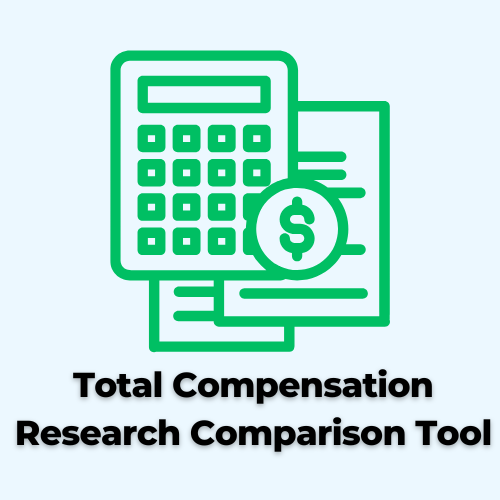
- Understand Total Compensation – Use our tool to break down and calculate the compensation in your job offer.
- Research & Compare Offers – Organize your compensation research and determine the right counter amount.
- Get Here
2) Complete Due Diligence On Your Cloud Security Engineer Job Offer By Asking The Right Questions
Once you’ve reviewed your compensation package carefully, your next step should be to start asking the recruiting team strategic questions about the position and offer.
Start by asking for clarity on any items that they may have been vague about (i.e., What is the expected equity refresher each year for this role?). The answers to these types of questions should include important data points you can use in your security engineer counteroffer.
You should still ask thoughtful and strategic questions even if you think you already have all the information. At the very least, it shows the recruiting team that you are seriously interested in the role and learning more about it.
If you’re not sure what to ask, you can use our list of Strategic Questions to Build Negotiation Leverage. We suggest starting this phase of the negotiation right after you receive the cloud security engineer job offer to display your interest in the role.
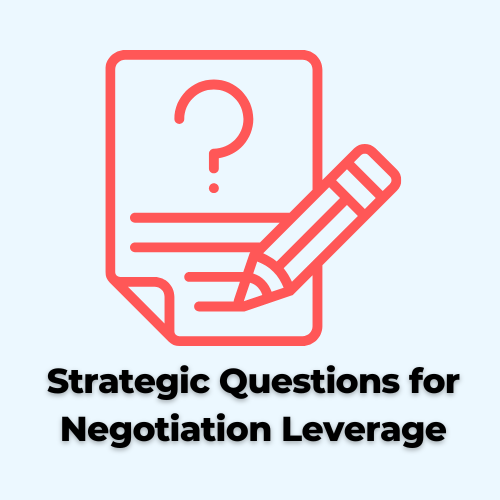
- Build Negotiation Leverage – Ask the right questions to strengthen your negotiation before sending a counter.
- Email & Phone Scripts – Get our list of questions to ask and what to say if the recruiter wants to chat through them.
- Get Here
3) Research To Identify What A Cloud Security Engineer Salary Should Look Like
This is probably the most important step of any compensation negotiation.
Since the salaries for security engineers will vary by company, you will need to spend some time researching pay data for your specific role. Without doing this research, you won’t be able to understand the strength of your particular job offer and how much you should counter for.
Make sure that your research is specific to your exact role type, level, and company (i.e., is it an Apple security engineer salary or and security engineer salary Google) and where it’s located, whether that be in-person, hybrid, or remote (i.e., a security engineer salary Seattle or
security engineer salary NYC).
Thankfully, there are many online resources you can use in your research, such as PayScale or Comparably.com. However, make sure to keep in mind that the information on these types of sites is publicly reported by current or past employees, so the pay they indicate could be different from what is now offered to new employees. Collecting and comparing pay data from multiple different sites will help you come up with the most accurate information.You can use our Total Compensation Research Comparison Tool to help you with your compensation research and identifying the pay ranges.

- Understand Total Compensation – Use our tool to break down and calculate the compensation in your job offer.
- Research & Compare Offers – Organize your compensation research and determine the right counter amount.
- Get Here
In general, we recommend to push for at least the mid- to top-end of the total pay range for your specific cloud security engineering salary during your negotiation. Don’t forget that in any job offer you accept, you’ll ultimately be expected to manage the same responsibilities as anyone hired for that position—regardless of your experience or background. So if you’ve been offered a specific position, you should be compensated the same way anyone else in that position would be.
4) Send A Cloud Security Engineer Counteroffer To The Recruiter
After researching pay data for your specific role, you should be ready to send over an official cloud security engineer counteroffer to the hiring team.
Your counter should include your new ask (with references to the pay data you’ve found) and should explain how the benefits in your current offer differ from other companies and/or your current role.
While you can present your counter over the phone, we highly suggest doing so over email. You’ll be more likely to stay on topic when drafting an email and you’ll be giving the recruiter something physical they can forward on and share internally with their team.
As with any step in the job-seeking process, present your security engineer counteroffer professionally and graciously. Remember: this is your first chance to show the team what it’s like to work with you. To ensure proper communication, use our Counteroffer Drafts for examples to help you formulate a strategic counteroffer.

- Proven Counteroffer Templates – Built from hundreds of successful job offer negotiations.
- Negotiate with Confidence – Remove the guesswork with our professionally crafted counteroffers.
- Get Here
5) Handle Any Objections And Know You Achieved The Best Security Engineer Salary
After sending over your counter, it’s possible that you’ll immediately receive an updated offer—but it isn’t very likely. So don’t be discouraged if they come back to you with a list of reasons why they can’t make any increases to the security engineer salary.
Instead, respond professionally by stating you understand their constraints, but ask again if they could take your thoughts back to their team for one last look just like we outline in our Objection Handling Scripts. You should still ask even if they insist their team will just say no.

- Overcome Recruiter Pushback – Proven scripts to handle pushback and keep your salary negotiation on track.
- Communicate Effectively – Use expert responses to get recruiters to advocate for you with the compensation team.
- Get Here
Once they agree to take your counter back to their team, they should return with a better offer. If the updated compensation package aligns with the pay data you researched and meets your personal and professional needs, you should be ready to send a offer acceptance email to lock it in!
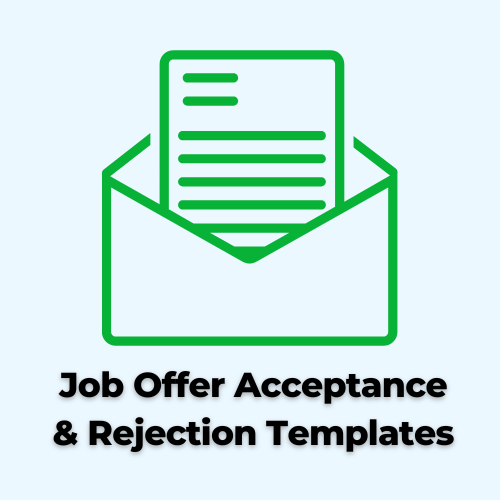
- Accept or Decline – Expert crafted job offer acceptance email and rejection email templates to share your decision.
- Professional & Genuine Tone – These help you communicate in a professional manner regardless of what you decide.
- Get Here
Mistakes to Avoid During Your Cloud Security Engineer Salary Negotiation
Now that we’ve gone over what you should do during your security engineer salary negotiation, it’s time to share a few things you shouldn’t do.
Below we’ve listed some of the top things you should make sure you avoid when you negotiate your security engineering salary.
AVOID SHARING SALARY EXPECTATIONS BEFORE YOU GET A SECURITY ENGINEER JOB OFFER
Did you know that sharing your salary expectations with a recruiter or on an application too early often works against you when trying to receive a fair job offer in security engineering?
Here’s why: If you share a lower compensation expectation than what the company could offer, they may be incentivized to offer you that lower compensation or downlevel you to a role that meets that salary range. On the other hand, if you share a salary expectation higher than what they could offer, there is a chance that they could become disinterested and choose to go with a different candidate over you.
Don’t forget that recruiting teams are trying to get the best deal for the company they’re working for—not necessarily you.
It also doesn’t make very much sense to share your salary expectations before you learn more about the specific security engineering role, its compensation and benefits, and whether those aspects feel like a good fit to you. Remember, you’re also interviewing them to see if this security engineer role and company are something you want to pursue so be sure to overcome these tactics by responding like this.
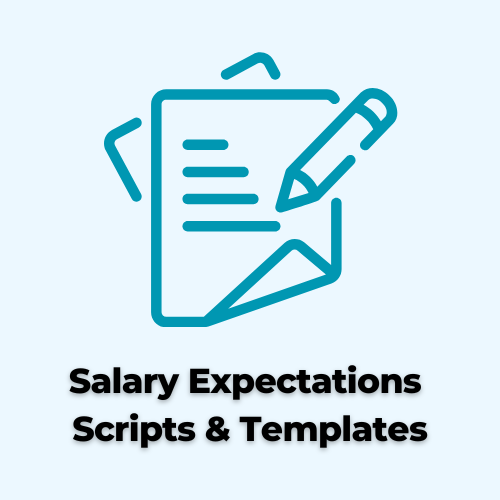
- Salary Expectation Responses – Scripts to overcome recruiter salary expectation discussions and pre offer calls.
- Avoid Lowballing Yourself – These call scripts and email templates will help you get a competitive offer.
- Get Here
DON'T BE AFRAID TO NEGOTIATE A CLOUD SECURITY ENGINEER JOB OFFER
Don’t miss out on increasing your total career earnings just because you're nervous to negotiate.
Job seekers often shy away from negotiating because they fear offending the recruiting team or losing the job offer altogether. However, you’ll be encouraged to know that we’ve helped facilitate hundreds of successful salary negotiations and we’ve never seen a company rescind a cloud security engineer job offer because of an attempted negotiation. Don’t let salary negotiation myths keep you from advocating for the compensation you deserve.
BE REALISTIC BY DOING YOUR SECURITY ENGINEERING SALARY RESEARCH
While security engineering roles are in high demand and pay well, that doesn’t mean that you should push for compensation that the company can’t realistically afford.
Overall, make sure that you conduct careful and in-depth salary research so that you know what an appropriate ask for your specific role looks like. For example, the compensation package for an Nvidia security engineer salary would look different than the package for a Google cloud security engineer salary.
Security Engineer Salary Negotiation Coaching & Tool
Increasing security engineer compensation requires a deep understanding of the company’s compensation philosophy and the right salary negotiation strategy. Our expert Salary Negotiation Coaching will help you navigate the security engineer salary negotiation process and secure the top end of the pay band.
Or leverage our Salary Negotiation Courses and Salary Negotiation Scripts.
 Job Offer Negotiation Course
Job Offer Negotiation Course
- Get our job offer negotiation strategies, templates, scripts, and guidance.
- Access our step-by-step lessons, compensation research guides, and tools.
- Access Now
 Raise Negotiation Course
Raise Negotiation Course
- Get our raise negotiation strategies, templates, scripts, and guidance.
- Access our step-by-step lessons, compensation research guides, and tools.
- Access Now



